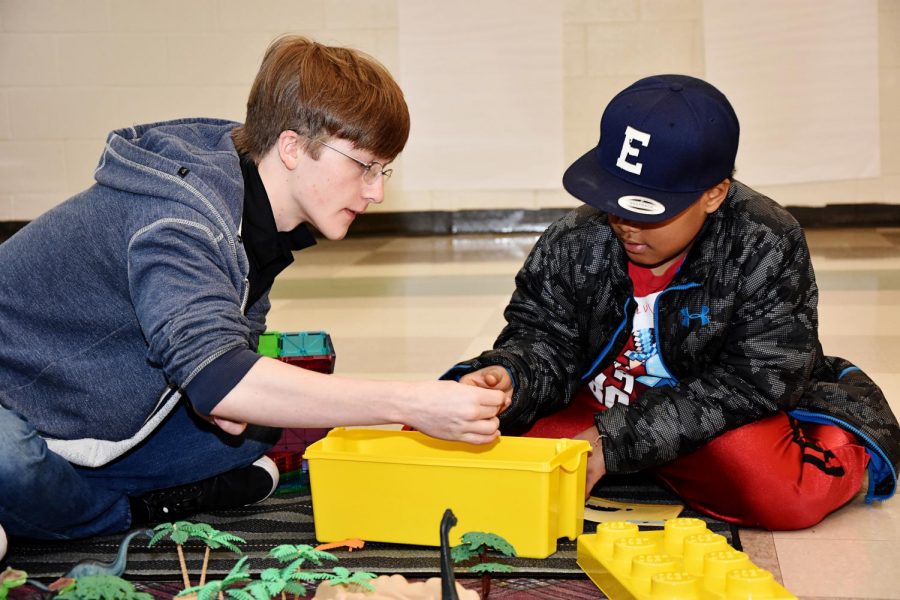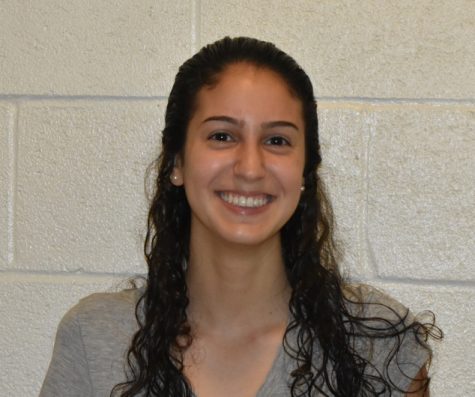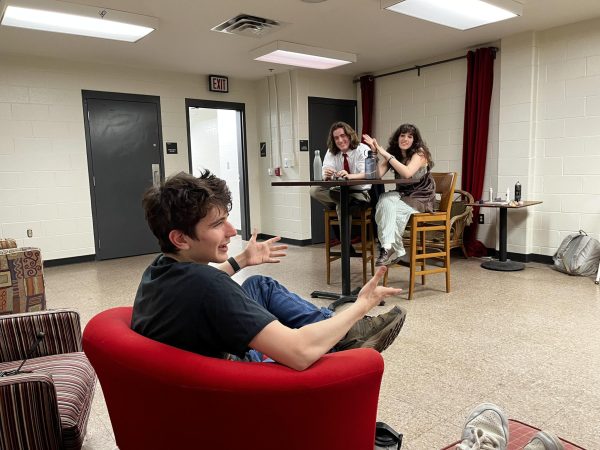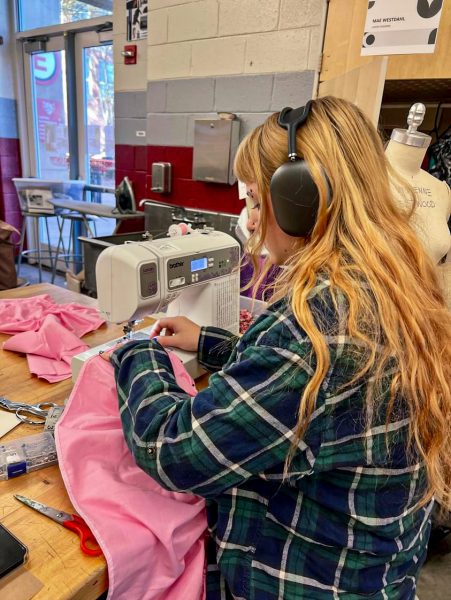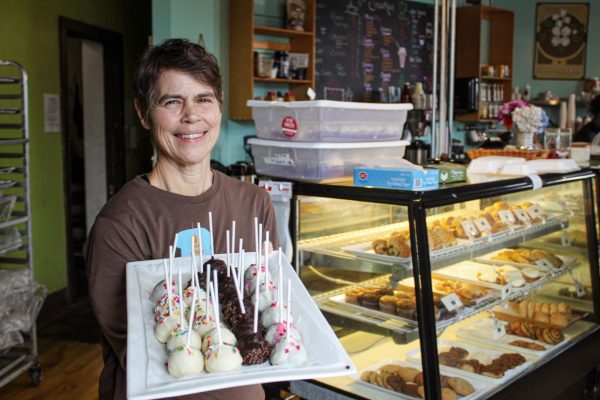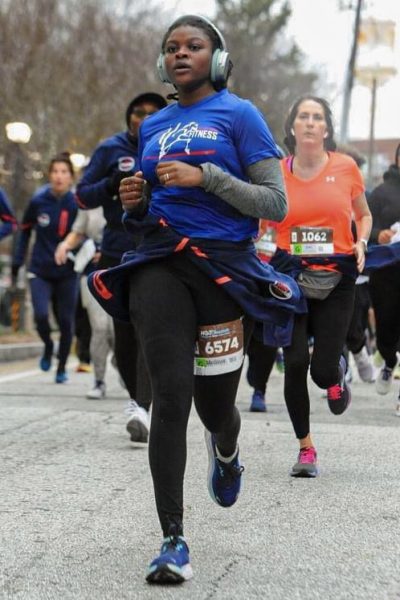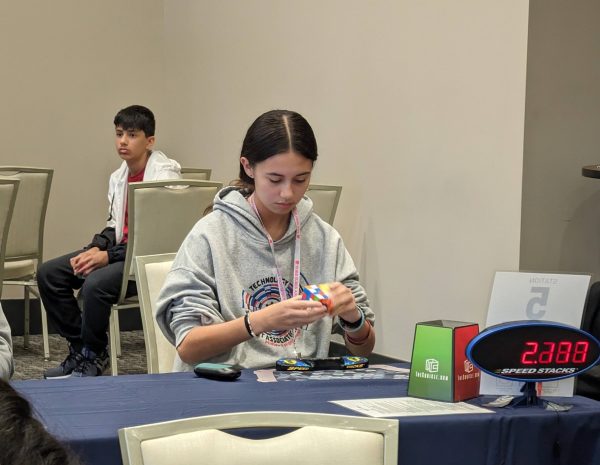Robotics promotes inclusivity in STEM
Senior Crispin Gambill works with special needs student at MDE school on Sept. 15.
March 26, 2019
Several audiences are consistently overlooked by STEM programs, including special needs students. Grady’s G3 Robotics team has tried to fill this void.
“We value inclusion above all else, so it was vital that special needs students in our own backyard have access to STEM activities designed especially for them,” said Karen Judd, communications (PR) specialist for AECOM, a global civil engineering firm, and consult for clients in the transportation field.
Robotics is split into three subteams- engineering, business, and drones. Led by sophomore Joanna Baker, the team organized two events designed to introduce STEM to children with special needs. The events thus far have been on Sept. 15, 2018 with the MDE School and Feb. 23, 2019 with FOCUS + Fragile Kids, both special needs organizations. While business coordinates outreach, drones and engineering always lend a helping hand.
“I thought it would be really cool if we could combine robots with special needs outreach somehow, since it’s a really fun, interactive way to introduce these kids to STEM who may not have been exposed to it before,” Baker said.
The first event, organized with MDE on Sept.15, 2018, yielded a small turnout but an enjoyable time. Kids were able to work with robots, drones and different sensory activities provided by the robotics team and volunteers.
“All the kids were really interested in the drones,” senior member Jack Labadia said “They especially liked when I set up some servo motors that they could manipulate themselves with my transmitter. It’s cool these folks get to see neat technology stuff, and I like helping out when I can.”
Feb. 23 brought a much larger turnout, with a total of 60-70 people. The team hosted a few stations, including sensory bins, a robot presentation, a drone demonstration, and a slime station.
G3 Team Captain Cate Crutcher manned the sensory bins. Crutcher found that some children with special needs find the different textures soothing, such as dried beans and kinetic sand, and others would strengthen their motor skills by trying to find bouncy balls hidden in rice.
“I had an amazing time, and was blown away by how involved participants were in the activities, and how incredibly Grady students interacted with the participants,” Judd said. “I’m excited to see this program grow. We’re looking at developing more substantial STEM activities for students capable of advanced engagement.”
Robotics is a growing program, with several community sponsors, three teacher-coaches, and more students joining year after year. The team qualified for the World Championships in Houston last year, and so far in the ongoing competition season, they have already qualified for State Championships.
Inclusivity and exposure is important to Baker and the rest of the team. Baker took the initiative to get the school and robotics team engaged because of her prior experience volunteering with the special needs community. The team is in the process of planning more events, hoping to further involve Grady’s special needs students.
“We don’t have another event planned right now, but we plan to do another one before the end of this year,” Baker said. “At these events, we get to work with some of the most adorable, smartest and happiest kids in the world.”
Speaking of the future, the robotics team is on its way to a major goal – to create a FIRST Lego League (FLL) team for special needs students. FLL is a Lego competition for middle and elementary schoolers, and the Grady team is hoping, in the upcoming years, to start an FLL team at a special needs school, something never done before in Georgia.
“This year, FIRST decided they wanted to train their volunteers better to work with special needs kids, so they sent out an announcement asking if any teams had tips they could share,” Baker said. “We were already doing that, so we composed a list of various tips -a training list of things to do and not to do- and we sent that out to them, and it’s likely going to get used during this competition season to train their volunteers.”
Not only are the events enjoyable, but they also create a lasting impact on the participants.
“We get to help special needs students find their STEM passion,” Judd said. “At our last event, a participant’s parent shared that she would be signing her child for more STEM activities, as she had never witnessed him that excited or engaged before. It’s the ultimate compliment to us.”

